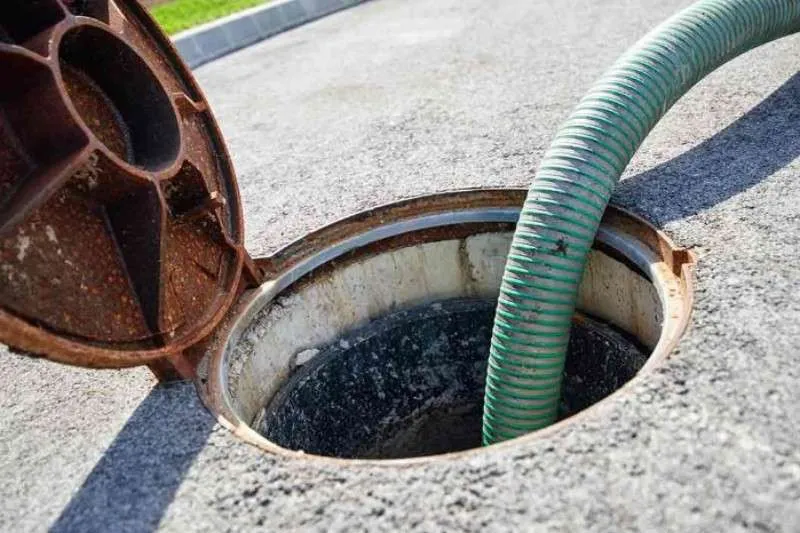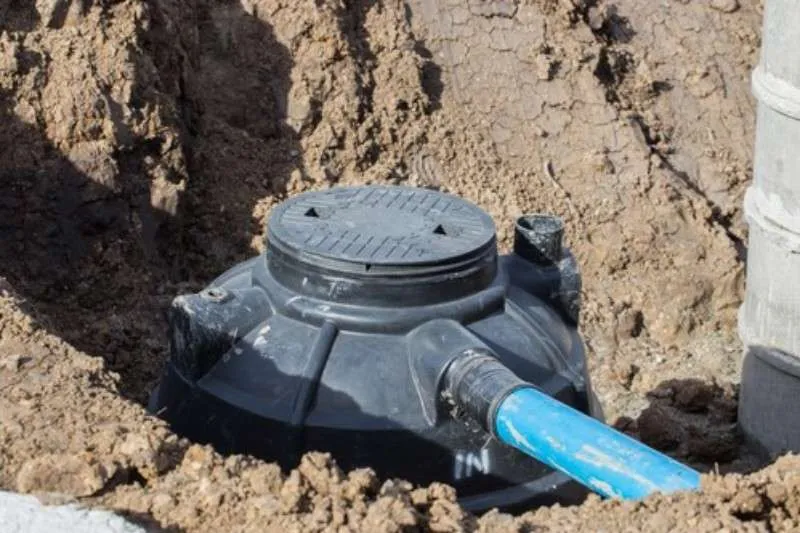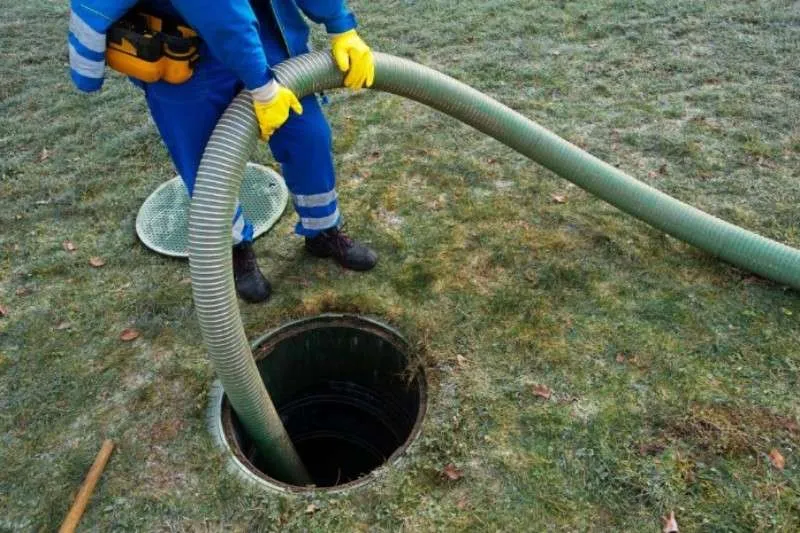Do you experience unpleasant odors coming from your septic system? It can certainly be embarrassing and make a living in your home uncomfortable. Fortunately, it is possible to get the situation under control using simple, easy implementation steps.
In this blog post, we’ll discuss what can cause septic system odor problems and advise on how to deal with them effectively. Read on to learn more about what could be causing odors emanating from your septic tank and tips for removing them.
Introduction to septic system odor issues
Septic system odors can be a source of unpleasantness and embarrassment. But they can also be a health hazard and signal problems with the septic system that must be addressed. Understanding what causes these septic systems’ smells and how to prevent them is essential for maintaining a healthy septic system.
Common causes of septic system odors include household items such as cooking grease and food waste, chemicals from cleaning products and supplies, and the breakdown of organic matter in the septic tank. The strong smell of rotten eggs usually shows hydrogen sulfide gas from the septic tank.
It’s important to address septic system odor issues right away. Not only can they be unpleasant, but they can also indicate potential health hazards. Hydrogen sulfide gas, for instance, whose strong odor is toxic and can cause headaches, nausea, eye irritation, and respiratory problems.
Common causes of septic system odors include household items such as cooking grease and food waste, chemicals from cleaning supplies, and the breakdown of organic matter in or near the septic tank. The strong smell of rotten eggs usually shows hydrogen sulfide gas from the septic tank.
It’s important to address septic system odor issues right away. Not only can they be unpleasant, but they can also indicate potential health hazards. Hydrogen sulfide gas, for instance, is toxic and can cause headaches, nausea, eye irritation, and respiratory problems.
Identifying the source of septic system odor
To address odors from a septic system, it is important to identify the source of the odors. Common sources include the septic tank, pipe, drain field line, and plumbing fixtures or drains connected to the well-maintained septic tank. It is also possible for external sources outside of the septic system to be the source of septic tank odors, such as a nearby sewage treatment plant or other external sources. Once the source is identified, steps can be taken to address the issue.
If the odor comes from near the septic tank, it could be caused by a serious septic tank smell, a malfunctioning vent pipe, or a damaged baffle. If this is the case, a septic tank inspection may be necessary. The septic tank should also be checked for signs of damage or leaks. If it is found that the vent pipe is malfunctioning, it can either be repaired or replaced.
The drain field line should also be inspected for clogs or blockages. If this is the case, it may need to be replaced or repaired. If the drain field line is not functioning or working properly, this could also cause a septic system odor.
The plumbing fixtures and drains inside the home should also be inspected and checked for any clogs or blockages that could cause odors. The pipes can be cleaned and flushed with a drain cleaner or other cleaning solution. If the leaking odors persist, professional plumbing help may be needed to correct the plumbing problem itself.
By following these steps and taking action when necessary, septic system odors can be addressed and eliminated for good.
Septic system vent-related odor issues

Several factors can cause septic system vent-related odor issues. This includes improper or inadequate vent placement, blocked vents, or damage to the vent pipes. If there is an issue with the plumbing vent pipe and the septic tank smells, or your septic tank and odors are present, you must detect and address the problem quickly.
Ensuring proper vent placement and function is important for maintaining a properly functioning septic system. Vent pipes should be placed in locations that allow odors to escape as far away from houses and other buildings as possible, which can help reduce any unpleasant smells. If the vent pipe is blocked or damaged, you must repair or replace it quickly to ensure proper function.
Clogged vents can also cause a foul odor or smell from your septic system. If you suspect the vent pipes are smelly, separate, odor, or clogged, you can hire a professional to inspect and clean the vents as needed. Additionally, if there is any damage or blockages in the vent pipes, these must be addressed promptly to prevent further septic odor issues.
Finally, regularly inspect the vents for any damage or blockages causing odors or smelly septic tanks. If there are any signs of damage, contact a professional septic service immediately. Taking steps to address vent-related odor issues can help ensure your septic system is functioning properly and free from unwanted odors.
Resolving odor issues from the septic tank
If your septic system is experiencing odor issues caused by a clogged or malfunctioning septic tank smell, it’s important to address the problem immediately. Here are some tips to help you deal with this septic odor issue:
1. Assess and address any potential problems with the capacity and maintenance of the septic tank. Ensure the septic tank gases and has enough space to accommodate the volume of waste that must be handled. Check for any blockages or issues with the septic tank’s components, such as the pipes, valves, and other mechanical parts
2. Ensure the tank is properly maintained according to local regulations. This includes pumping out any excess sludge or organic waste material that may have built up in the full tank over time and other debris, such as regular system inspection.
3. Ensure the correct level of bacteria is maintained within the septic tank. An imbalance in bacterial levels and septic smell can lead to a build-up of toxic gasses and odors, which must be addressed promptly.
4. If your septic tank maintenance hole is located where leaks or seepage can occur, it’s important to take the necessary steps to prevent this. Your shofamily’s been aware of any potentishofamily’sising from a full septic tank maintenance hole or malfunctioning septic tank maintenance hole can.
Dealing with odors from the drain field
Septic system odors can be caused by various issues, ranging from your problems with the drain field tofryou’reblems landscaping and drainage. It’s important to identify the sourceIt’sthe odor and take immediate action to avoid further damage.
The most common causes for septic odors from a drain field include faulty design, failure to properly maintain the system, inadequate drainage for water runoff around the drain field, and soil saturation due to too much wastewater entering it.
When dealing with the septic smell or odors from a drain field, you should: inspect your drain fields regularly for any signs of failure or damage; identify areas that need improvement in terms of landscaping and drainage; consult with a professional if you suspect the septic smell system may need repair or replacement; ensure adequate ventilation in the area near the drain field to reduce odors.
If your property is experiencing septic system odor issues due to general saturation, you should take steps to reduce wastewater entering the soil. This can include installing additional risers to prevent saturation, adding an aeration system to increase oxygen levels, warm water, and improve microbial activity, or eliminating sources of excessive water entering the drain field.
Finally, ensuring that your landscaping and drainage are adequate for the area around the drain field is important. This may include ensuring no trees with roots extending into the drain field, adding a properly graded berm or swale around the area to divert runoff from the drain field, and avoiding over-saturating the soil with irrigation.
Identifying and addressing any issues related to septic system odors can help protect your property and health from potential hazards. It’s essential to take prompt action and work with a professioIt’sto properly address any problems with the foul smell from your septic system.
Preventing septic system odors in the Future

Once you’ve identified and appropriately dealt with the causes of septyou’vetem odors, it’s important to take steps to prevent odor issues in the futureit’sgularly. Scheduled maintenance and inspections are one way to keep your septic system running efficiently and effectively. It’s recommended that homeowners have their tanks inspected annuaIt’sor every three years if they have a newer system. Additionally, you can help prevent septic odors by adopting responsible solid waste and disposal habits.
Avoid pouring grease or cooking oil down the drain, as it can cause blockages and other issues that lead to septic tank odors. Never pour chemicals like paint thinners, solvents, or pesticides into your septic system. Finally, you should only flush toilet paper and human waste down the drain. Other items, such as paper towels and sanitary napkins, can lead to clogs that create backups and odors in your septic tank system.
Following these tips, you can keep your septic tank running smoothly and odor-free for years. If you experience any issues with your septic pump out, tank, or system smell, contact a professional service for assistance. They can inspect and assess the situation to determine the best action for resolving odor problems in your septic system quickly and safely.
FAQs
What are the common causes of septic system odors?
The most common causes of septic system odors are a faulty design, failure to properly maintain the septic system smell, inadequate drainage for water runoff around the drain field, and soil saturation due to too much wastewater entering it.
How can I identify the source of septic system odors on my property?
Inspecting your drain fields regularly for any signs of failure or damage can help you identify the source of a septic tank or system odor. Finally, ensuring adequate ventilation near the drain field can help reduce odors.
What steps should I take if my septic system vent is causing odors?
If your septic system vent is the source of odors, you should reduce wastewater entering the vent stack and the soil to reduce saturation. This can include installing additional risers to prevent over-saturation, the soil treatment area adding an aeration system to have air currents increase oxygen levels and improve microbial activity, or eliminating sources of excessive water entering the sewer gas in the drain field.
What should I do if my drain field is causing unpleasant odors?
If your drain field is the source of septic system odors, you should ensure that your landscaping and drainage are adequate for the area around the drain field. This may include ensuring no trees with roots extend into the drain field, adding a properly graded berm, or swaling around the area to divert runoff from the drain field.
How can I prevent septic system odors in the future?
Preventing septic tank odor and system odors in the future is possible with regular maintenance and inspections, adopting responsible waste disposal habits, and ensuring adequate drainage around the drain field. If you have a newer system, scheduling an inspection of beneficial bacteria in your septic tank annually or every three years can be beneficial because bacteria help keep it running efficiently and effectively.
Conclusion
Septic systems can be a source of odors affecting your and your family’s quality of life. It is essential to carefully monitor your stepfamily and take action by calling a professional if you notice any peculiar odors coming from it. Suppose you’re willing to invest some time in understanding what may be causing the issues associated with your septic system. In that case, you will have the best chance of succeeding with these solutions.


